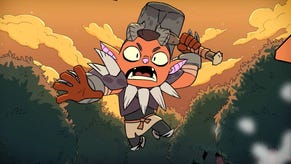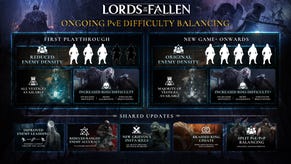Exclusive: How a Culture of Crunch Brought Telltale From Critical Darling to Layoffs
Telltale's restructuring is just one part of a complicated history.
This article first appeared on USgamer, a partner publication of VG247. Some content, such as this article, has been migrated to VG247 for posterity after USgamer's closure - but it has not been edited or further vetted by the VG247 team.
This story was originally published on November 17, 2017. In light of the news that Telltale is closing we are sharing the story of Telltale's first major layoff.
Telltale Games laid off 90 employees last week, a cutback that saw the studio lose about 25 percent of their staff. That's not a small number for a developer that prior to the layoffs employed close to 400 people. Since then multiple sources spoke with USgamer on the condition of anonymity, with stories of how the layoffs stemmed from multiple management missteps—which Telltale seems to be actively combatting following its restructure.
Over the course of speaking to numerous people close to Telltale, a picture emerged of how the studio followed one of its most critically acclaimed releases, The Walking Dead: Season One, with years of frustrating practices that, at least to some extent, affected employee morale at the company. Some employees talked about this period as incredibly difficult for them. Others have also suggested that the layoffs, while painful, are part of a larger course correction for the company.
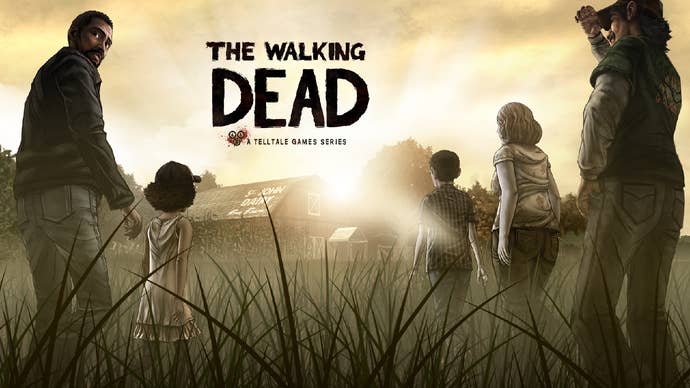
Telltale's Crunch
At the heart of the matter is the repeated claim that for a period of time, Telltale suffered from harmful management practices. It was to a degree where it even became hostile for some employees. As one former Telltale employee told me, "The mentality was work harder, faster, and for as long as you can to hit your milestones. Churn and burn."
The workload, and particularly how the company managed its ambitious launch schedules, were a common source of criticism from those we spoke to about this story.
This culture can be traced back to 2012, the year of The Walking Dead's breakout success when it was a critical and commercial hit that earned the studio around $40 million. Telltale has since been chasing similar success, bulking up their portfolio with some of the biggest IPs in pop culture, including Batman, Guardians of the Galaxy, and Minecraft.
These were high profile IPs, and to make sure these titles took full advantage of the cultural zeitgeist, multiple titles were worked on simultaneously. Content was pushed out the door as Telltale's headcount ballooned to 400 employees.

The period from 2014 to 2017 saw a near constant rush of releases. The Wolf Among Us and The Walking Dead: Season 2 released in late 2013 and continued through the summer of 2014. Tales from the Borderlands and Game of Thrones started in the winter of 2014, and so on. This pace has continued pretty much through the present day.
One source told USGamer that, "At one point, there was a quote (printed on paper) on one of the creative director's doors that read something to the tune of, 'It's not about how much time you need to make a good game, it's about how good of a game you can make with the time you have.'" Several other sources confirmed they had also seen this sign.
Working on these franchises wasn't easy on employees either. One anonymous source said that having to work on games tied to existing IPs was sometimes seen "as a hindrance" due to the nature of working with an established IP. In addition, according to several sources, Telltale handed down "heavy rewrites" that could account for as much as "80 percent" of a game. And these rewrites would sometimes come very last minute.
"[Sometimes] team leadership would push through [with rewrites] anyway for one of many reasons—time, prestige, actual belief in subpar ideas," one source said. "And it would always come back on them in the end. We'd always eventually fix the product. But late fixes were deeply disruptive. [...] [These problems] could have been avoided by better decisions earlier in the process."
Inconsistent feedback was also cited as a problem. Another source said, "So much effort was spent reacting to reactions, and the notes would be wildly different every time. So a lot of time it resulted in schizophrenic [game] episodes cobbled together via contrary notes."
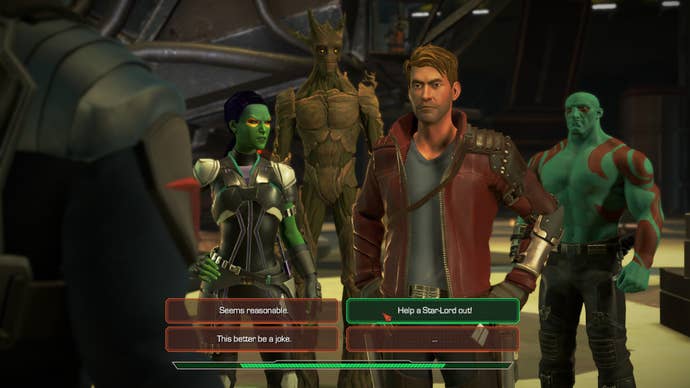
Like a lot of video game companies, there were times of crunch. No matter how "minimal," crunch is widely understood as harmful in the video game industry. While the amount of crunch varied from department to department and from year to year, for some the damage was already done. Telltale's formerly strong reputation was put to the question as fans complained about a multitude of glitches and bugs, while critics grumbled about the increasingly outdated engine.
Earlier this year, Waypoint's Patrick Klepek skewered Telltale's reliance on their "ancient tech". "Telltale's history of hobbled tech goes back a ways, too," Klepek wrote. "A source told me that even as the company was riding the success of The Walking Dead, their engine didn't have a physics system. (Telltale has their own proprietary technology, it doesn't use Unity, Unreal, or something else off the shelf.) If a designer came up with a scene requiring a ball to roll across the floor, or a book to fall off a shelf, it had to [be] done by hand, an enormous time and resource commitment."
That "ancient tech" is called Telltale Tool, an internally developed engine used for all of Telltale's titles since 2005. One source told us of the tool's inherent hurdles. "The team was always trying to improve the game in a multitude of ways, from engine stability and performance to story and gameplay design," they said. "This combined with a tight schedule [had] a high potential to introduce new bugs."
Over the course of speaking to sources at Telltale, the prevailing narrative is that these problems stemmed from multiple parties in positions of management. These positions, we've learned, have been affected by the recent layoffs.
What's Next?
The hiring of former Zynga general manager Pete Hawley as CEO, along with the recent restructuring, are viewed by some close to the company as a much-needed course correction for Telltale. When we reached out to Telltale Games for comment regarding our findings, a Telltale representative reissued the statement the company gave after the layoffs.
From the outside, it's easy to play armchair doctor with Telltale Games. The company appears to work at an insane pace—particularly given the type of games Telltale works on. And sales appear to have have dropped since The Walking Dead: Season One's considerable 8.5 million episodes. For instance, by contrast, SteamSpy lists ownership of Batman: The Telltale Series only in the hundreds of thousands.
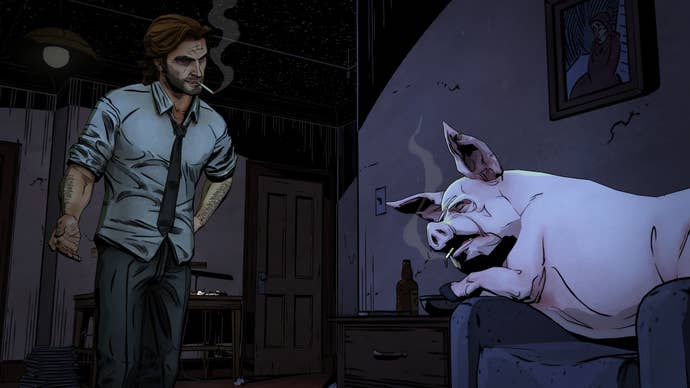
Fans and critics are also seemingly less kind to the bugs and glitches found in some of the newer Telltale releases. So while games like Batman, Guardians of the Galaxy, and Tales From the Borderlands have received praise for their storytelling, a consensus among critics say the tech is just too outdated.
On this, Telltale's statement regarding the layoffs appears to indicate that big changes are coming to the company, including potentially moving to a new game engine.
From what we've gathered internally, the layoffs swept up key instigators from the previous management, and there's now a reportedly refreshed corporate culture in place. With the whispers of a new game engine and key games like The Wolf Among Us 2 in development, perhaps this is the start of a changed era for Telltale.
However in the end, a staggering 90 employees were still let go. Nearly everyone we spoke to expressed their devastation about the news. But there was also a feeling of inevitability about the layoffs. A testament to a time of turbulence at Telltale.
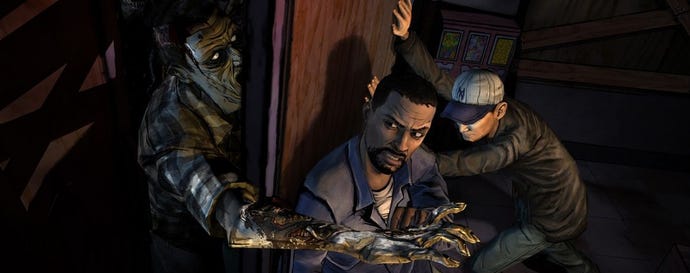

.png?width=291&height=164&fit=crop&quality=80&format=jpg&auto=webp)
